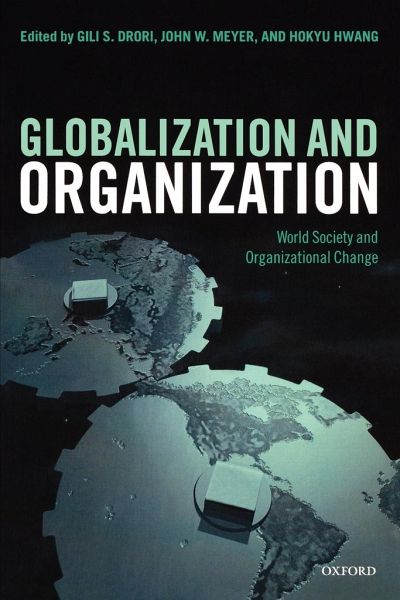
Globalization and Organization
World Society and Organizational Change
Herausgegeben von Drori, Gili S.; Meyer, John W.; Hwang, Hokyu
Versandkostenfrei!
Versandfertig in 1-2 Wochen
71,99 €
inkl. MwSt.

PAYBACK Punkte
36 °P sammeln!
The process of globalization has led to an intensification of global interdependencies and the consolidation of the global as a social horizon. This has provided fertile breeding grounds for new organizations and the elaboration of existing ones. This book analyzes these organizations, and the modern managerialism that has accompanied them.
All around the world, societies are experiencing an explosion of organizations and organizing: community clubs, religious groups, social movements, as well as schools, hospitals, businesses and government agencies, increasingly take the form of complex and formal organization. Why? Why is global society recast in this format and why so fiercely?
This book explores various dimensions of the trends of expansion, formalization, and standardization of organizing worldwide by exploring such organizational legacies as accounting, business management, corporate social responsibility, and performance benchmarks. Featuring contributions from prominent academics, the book argues that these processes can be attributed to globalization and to its specific tendencies of universalism, rationalization, and rise of the modern notion of the strongly
bounded and purposive social actor.
An application of institutional arguments to global issues, the book will be of interest to academics and researchers of Organization Studies, Sociology, Political Science, and Geography.
This book explores various dimensions of the trends of expansion, formalization, and standardization of organizing worldwide by exploring such organizational legacies as accounting, business management, corporate social responsibility, and performance benchmarks. Featuring contributions from prominent academics, the book argues that these processes can be attributed to globalization and to its specific tendencies of universalism, rationalization, and rise of the modern notion of the strongly
bounded and purposive social actor.
An application of institutional arguments to global issues, the book will be of interest to academics and researchers of Organization Studies, Sociology, Political Science, and Geography.














